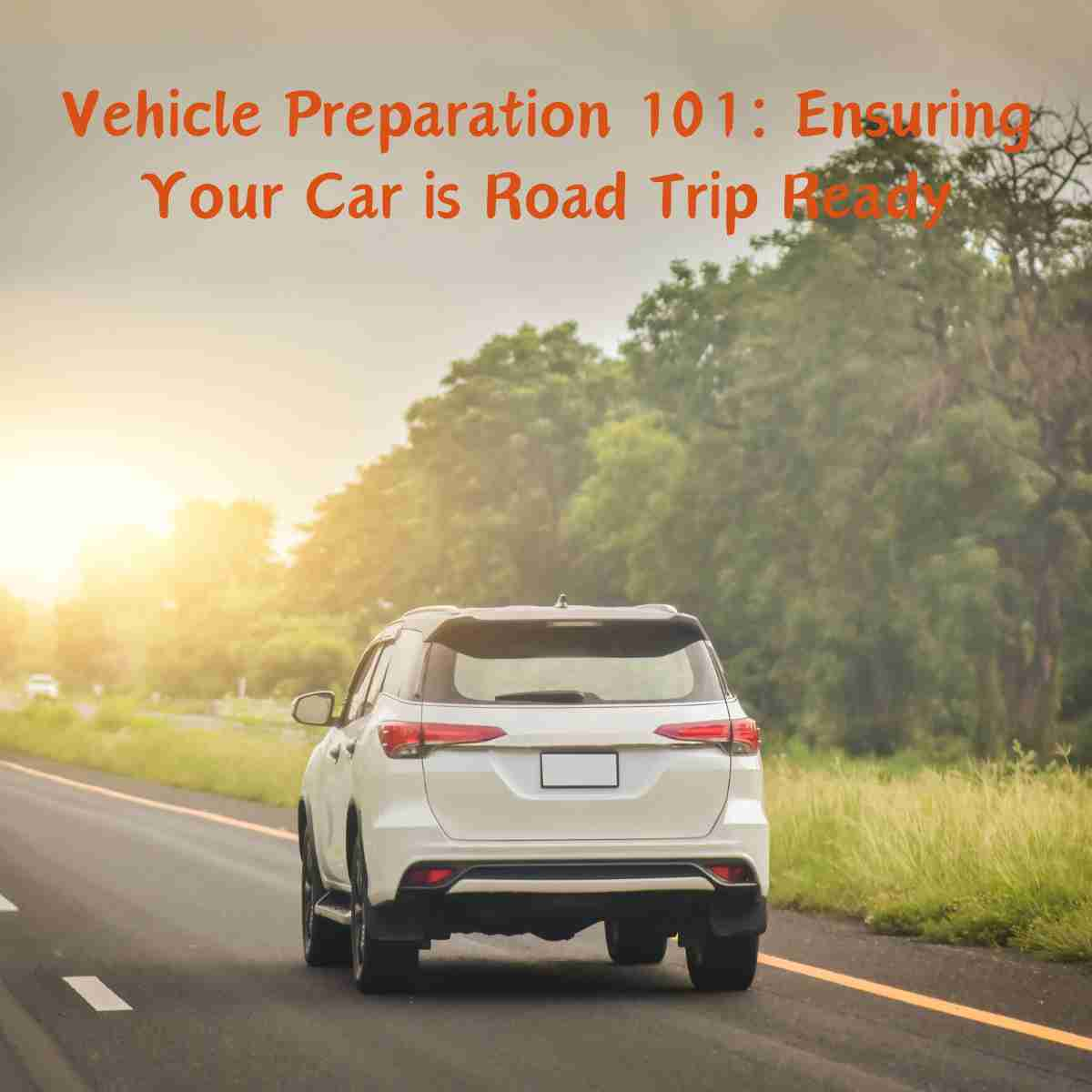Are you gearing up for a road trip and feeling the buzz of excitement? There's something thrilling about the idea of exploring new places from the comfort of your own vehicle.
However, the success of your road trip largely depends on one crucial aspect: your car's readiness. A well-prepared car is your best partner on the road, ensuring a smooth and safe journey.
So, before you start packing your bags and creating that perfect road trip playlist, it’s time to ensure your vehicle is in tip-top shape.

It's not just about avoiding breakdowns; it's about making every mile of your journey worry-free and enjoyable. Let’s walk through the key steps to ensure your car is road trip-ready.
Check Your Tires
Your tires are your car’s only contact with the road, so it’s vital to ensure they are in good shape. Start by inspecting the tire tread. Worn-out tread can be dangerous, especially in wet conditions.
You can use the penny test: insert a penny into the tread with Lincoln’s head upside down. If you can see all of Lincoln’s head, it’s time to replace your tires.
Additionally, check the tire pressure. Under-inflated tires can lead to poor fuel efficiency and increase the risk of a blowout. To learn more about maintaining your tires and preventing unexpected issues, explore these 5 ways to help prevent tire blowouts. It offers essential tips that can extend the life of your tires and enhance your safety on the road. Refer to your car’s manual or the sticker on the driver’s side door for the recommended tire pressure.
Pro Tip: Rotate your tires if you haven’t done so in a while. This helps in even wear and extends the life of your tires.
Fluid Levels Matter
Fluids are the lifeblood of your car. Before heading out, check and top off all essential fluids.
- Engine Oil: Ensure it’s at the right level and change it if it’s due. Clean oil is vital for engine health.
- Coolant: Prevents your engine from overheating. Make sure it’s at the correct level.
- Brake Fluid: Crucial for your braking system. If it’s low, get it checked for leaks.
- Transmission Fluid: This keeps your transmission running smoothly.
- Windshield Washer Fluid: Essential for keeping your windshield clean and ensuring visibility.
Inspect Your Brakes
Your brakes are critical for safety, especially on a road trip where you may encounter varying driving conditions. Listen for any unusual noises when braking, such as squeaking or grinding. These sounds could indicate worn brake pads. Also, check if the brake pedal feels spongy, which could suggest air in the brake lines or low brake fluid.
Test Your Lights and Signals
Functioning lights and signals are essential for your safety and for communicating with other drivers. Check all your lights, including headlights, taillights, brake lights, and turn signals. Replace any burnt-out bulbs and clean the lenses to ensure maximum visibility.
Battery Health
A dead battery can ruin your trip before it even begins. Check the battery terminals for any signs of corrosion and clean them if necessary. If your battery is more than three years old, consider having it tested. A weak battery should be replaced to avoid the risk of it dying while you are on the road.
Emergency Kit Essentials
No one likes to think about the worst-case scenarios, but being prepared can make a big difference. Pack an emergency kit that includes the following.
- Jumper cables
- Flashlight with extra batteries
- Basic tools (screwdriver, pliers, adjustable wrench)
- First aid kit
- Flares or reflective triangles
- Blanket and warm clothes
- Non-perishable snacks and bottled water
Comfort and Convenience
While safety is paramount, comfort can make your trip much more enjoyable.
- Adjust Your Seats and Mirrors: Ensure you have the best possible driving position and visibility.
- Clean Your Car: A clean car is more pleasant to travel in. Remove any clutter and vacuum the interior.
- Organize Your Essentials: Keep important items like your phone, charger, snacks, and a map within easy reach.
Plan Your Route
Knowing your route in advance can save you from unnecessary stress. Use a GPS or a reliable map app to plan your journey. Check for any road closures or construction work that might affect your trip. It’s also wise to have an old-fashioned paper map as a backup in case your electronic devices fail.
Final Thoughts
Taking the time to prepare your vehicle for a road trip can make a huge difference in your overall experience. The above-discussed tips can help you ensure that your car is ready to tackle the miles ahead, keeping you and your passengers safe and comfortable. Remember, a little preparation goes a long way in ensuring a smooth and enjoyable journey. So, before you hit the road, spend a little time on these preparations. Your future self, cruising down the highway with a smile, will thank you!
